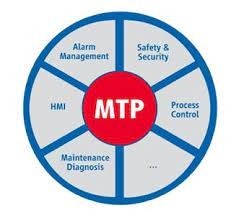Chris Monchinski, CTO Inflexionpoint
Are you still amazed at how easy it is to purchase a printer of any size, shape, and feature set… plug that printer into your network (or even USB) and have your applications quickly recognize that printer’s capabilities, putting the printer to immediate and effective use. You’re probably not, kind of mundane, but you should be, because the cost and complexity of integration in the industrial automation space is soaring, driven by the insatiable need for accurate and actionable data by businesses.
An underlying foundation for Industrial Digital Transformation is the need to perform ever more complex integrations in a way that is maintainable and scalable. Strides has been made to adopt open protocols such as OPC-UA and standards such as PACK-ML to normalize integration points between vendor independent equipment and the overall system control. What is missing is a more intelligent encapsulation of an equipment or unit’s capabilities that can be quickly leveraged and “plugged into” the overall control system. There are several efforts underway to develop a more comprehensive and flexible automation integration approach that capture all the complexities and services of a single automated system and package these for easy discovery and integration into an overall, federated control system. The adoption of standards such as the Module Type Package (MTP) will allow for more complex, normalized integration of information enabling control system architects to rapidly deploy and use heterogenous equipment to the maximum benefit of the overall system.
Module Type Package (MTP) is a standardized, non-proprietary way of describing process automation modules from individual components including individual vendor equipment, production skids and unit operations, which enables these systems to work with other modules, and fit more easily into larger applications.
What is MTP?
Developed by the User Association of Automation Technology in Process Industries (NAMUR), MTP – module type package – provides a framework for standardized equipment data models and a semantic description language to streamline interoperability.

The MTP or Module Type Package is vendor neutral. It works as an electronic manifest of the functional capabilities of equipment or a unit level process. These contained packages are called process equipment assemblies and enable process module automation. Engineering and design tools can be used to create these modules for exchange. What’s inside the MTP… the MTP contains all necessary information to integrate a module into a modular plant, such as the supported communication protocols, capabilities, capacities, visual interfaces and maintenance information.
Modularization is an important tool to streamline production and adjust rapidly to changing market demand. MTP compatible equipment can “plug in” to an overall modular system that can orchestrate these systems in an efficient and safe operation. MTP compatible equipment provide the description of services and capabilities to the overall system for rapid discovery and integration. Likewise, these intelligent MTP systems can provide rich telemetry on their effective operation against key business metrics.
While we may still be working to outfit existing legacy equipment with the telemetry needed to drive the business goals of digital transformation using customized approaches that leverage some standardized elements, the future of automation integration and the ultimate prize of total operational lifetime cost savings will ultimately belong to integration approaches that leverage full, intelligent modularity, such as MTP.
